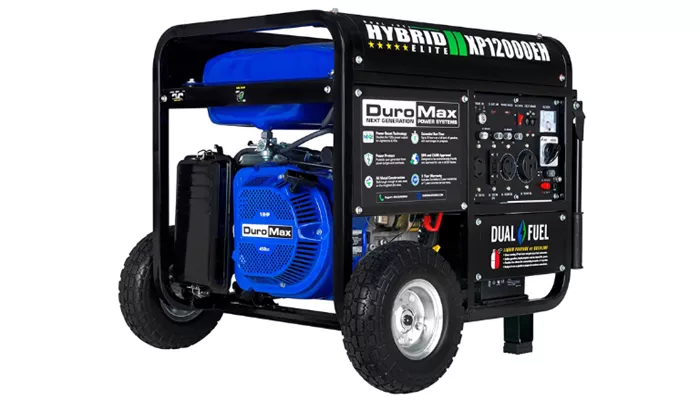Power outages can happen at any time, leaving your home in the dark. A gas-powered generator is a reliable solution to keep your essential appliances running. In this guide, we’ll explore the 5 best gas-powered generators for home use, their features, and how to choose the right one for your needs.
Why Choose a Gas-Powered Generator for Your Home?
Gas-powered generators are popular for home use because they are affordable, widely available, and easy to maintain. They run on gasoline, which is readily accessible, making them a practical choice for emergencies.
Benefits of Gas-Powered Generators
Cost-Effective: Gasoline is cheaper than other fuel types like propane or diesel.
Portable: Most gas-powered generators are lightweight and easy to move.
High Power Output: They provide sufficient power for essential home appliances.
Key Features to Look for in a Gas-Powered Generator
When shopping for a gas-powered generator, consider these essential features:
1. Power Output
The generator’s wattage determines how many appliances it can power. Calculate your home’s power needs by adding the wattage of essential devices like refrigerators, lights, and sump pumps.
2. Run Time
Look for a generator with a long run time to avoid frequent refueling. A good generator should run for at least 8-10 hours on a full tank.
3. Portability
If you need to move the generator around, choose a model with wheels and a sturdy handle.
4. Noise Level
Gas-powered generators can be noisy. Opt for a model with a low decibel rating if noise is a concern.
5. Fuel Efficiency
A fuel-efficient generator will save you money on gasoline and reduce the need for constant refueling.
6. Safety Features
Look for features like automatic shutoff, low-oil sensors, and overload protection to ensure safe operation.
Top Gas-Powered Generators for Home Use
Here are some of the best gas-powered generators for home use, based on performance, reliability, and customer reviews:
1. Honda EU2200i
Power Output: 2,200 watts
Run Time: Up to 8.1 hours on a single tank
Noise Level: 48-57 dB
Features: Inverter technology for clean power, lightweight, and fuel-efficient.
2. Generac GP3300i
Power Output: 3,300 watts
Run Time: Up to 8 hours at 25% load
Noise Level: 58 dB
Features: Quiet operation, portable, and easy to use.
3. Champion 3800-Watt Dual Fuel
Power Output: 3,800 watts
Run Time: Up to 9 hours on gasoline
Noise Level: 68 dB
Features: Dual fuel capability (gasoline or propane), electric start, and durable design.
4. Westinghouse WGen7500
Power Output: 7,500 watts
Run Time: Up to 16 hours on a 6.6-gallon tank
Noise Level: 72 dB
Features: Remote start, transfer switch ready, and powerful performance.
5. DuroMax XP12000EH
Power Output: 12,000 watts
Run Time: Up to 8 hours at 50% load
Noise Level: 74 dB
Features: Dual fuel capability, electric start, and heavy-duty construction.
How to Choose the Right Generator for Your Home
1. Assess Your Power Needs
Make a list of the appliances and devices you want to power during an outage. Add up their wattage to determine the generator size you need.
2. Consider Your Budget
Gas-powered generators come in a wide price range. Set a budget and choose a model that offers the best value for your money.
3. Evaluate Portability
If you plan to move the generator frequently, prioritize lightweight and portable models.
4. Check Noise Levels
If noise is a concern, look for generators with lower decibel ratings.
5. Look for Safety Features
Ensure the generator has safety features like automatic shutoff and overload protection.
Maintenance Tips for Gas-Powered Generators
Proper maintenance ensures your generator runs smoothly and lasts longer.
Follow these tips:
1. Regular Oil Changes
Change the oil after every 50-60 hours of use to keep the engine running efficiently.
2. Clean the Air Filter
A dirty air filter can reduce performance. Clean or replace it regularly.
3. Inspect the Spark Plug
Check the spark plug for wear and tear and replace it if necessary.
4. Store Properly
When not in use, store the generator in a dry, cool place. Use a fuel stabilizer to prevent gasoline from degrading.
5. Test Regularly
Run the generator for a few minutes every month to ensure it’s in good working condition.
Safety Precautions When Using a Gas-Powered Generator
1. Operate Outdoors
Always use the generator outdoors in a well-ventilated area to avoid carbon monoxide poisoning.
2. Keep It Dry
Protect the generator from rain or snow to prevent electrical hazards.
3. Avoid Overloading
Do not exceed the generator’s wattage capacity to prevent damage or fire.
4. Use Heavy-Duty Extension Cords
Use outdoor-rated extension cords to connect appliances safely.
5. Turn Off Before Refueling
Always turn off the generator and let it cool before refueling to avoid accidents.
Conclusion
A gas-powered generator is an excellent investment for keeping your home powered during outages. By considering factors like power output, run time, and safety features, you can choose the best generator for your needs. Regular maintenance and safe operation will ensure your generator remains reliable for years to come.
Whether you opt for the Honda EU2200i for its quiet operation or the DuroMax XP12000EH for its high power output, there’s a gas-powered generator perfect for your home. Stay prepared and never worry about power outages again!

